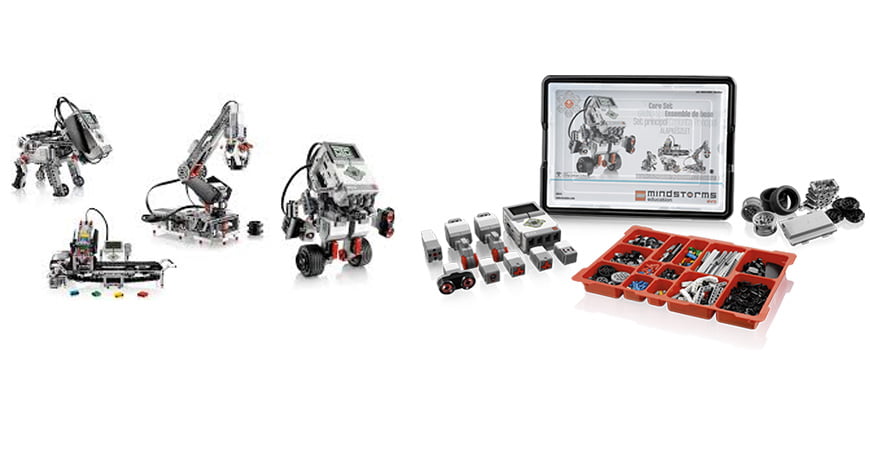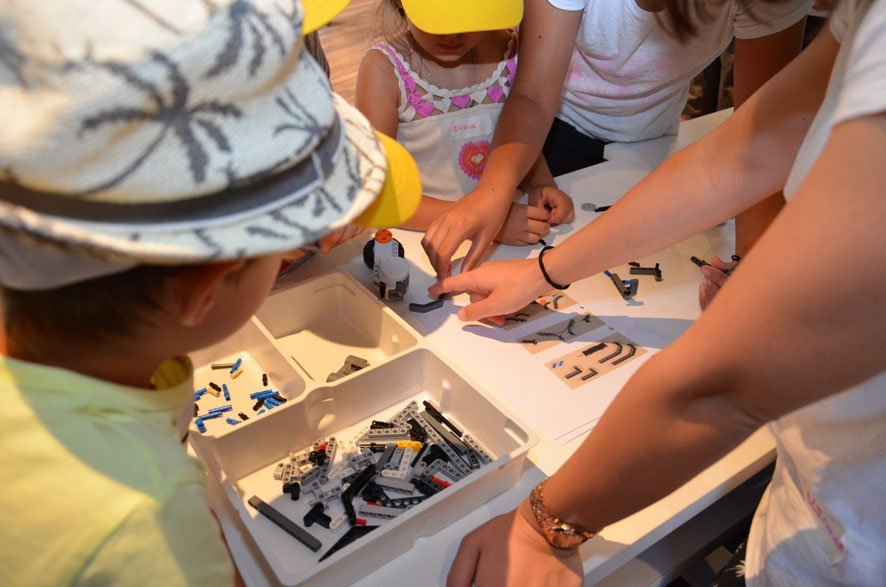Educational robotics with LEGO Mindstorms is designed for junior high school students. Engaging in team building a functionally autonomous and complex robot helps them to develop their creative power and at the same time to empathically understand the concepts behind the physical dimensions of distance, time, speed and mass in an exciting way.
Each robotic structure, in order to work autonomously, needs applied programming that is hereby approached by the new generation for the first time, through complex algorithms that children can easily compile in the special programming environment that Mindstorms EV3 delivers in a virtual way. All activities are accompanied and explained in specially designed worksheets.
21st Century skills related to the Engineering, Technology and Mathematics sciences are quickly becoming essential for the future professional rehabilitation of students, but teaching these subjects may be difficult because of their abstract nature. The practical approach to educational robotics with LEGO Mindstorms transforms abstract concepts into tangible teaching experiences and puts learners at the center of the learning environment.
At the same time, children are prepared to participate, if they so wish, in the annual Pan-Hellenic Educational Robotics Competition especially for high school students, one step prior to the WRO International Olympics. Students who will stand out there are automatically introduced to the University they want!
Cross-curricular knowledge
- Physics: Friction, Velocity, Force, Laws of Mechanics
- Technology: Complex Machines, Automatic Robotic Structures
- Mechanics: mental dipoles – Static or Flexible Structure, Strength or Speed
- Mathematics: Applied Mathematics, Pattern Search, Complex Algorithms & Advanced Programming Techniques (Line Sequence, etc.)
Topics
Section 1: Brief introduction & learning or recalling skills in the use of sensors in creating automation to support autonomy in robotic constructions
Section 2: Familiarization in the use of programming algorithms for the functional autonomy of robotic constructions (decisions, repeats, repetitive processes)
Section 3: Applying the acquired skills to the construction and operation of advanced, prototype, robust and functional autonomous robotic constructions that use specially configured slopes to achieve specific goals through technical line-up
Section 4: Study of separate robotic structures from previous competitions

